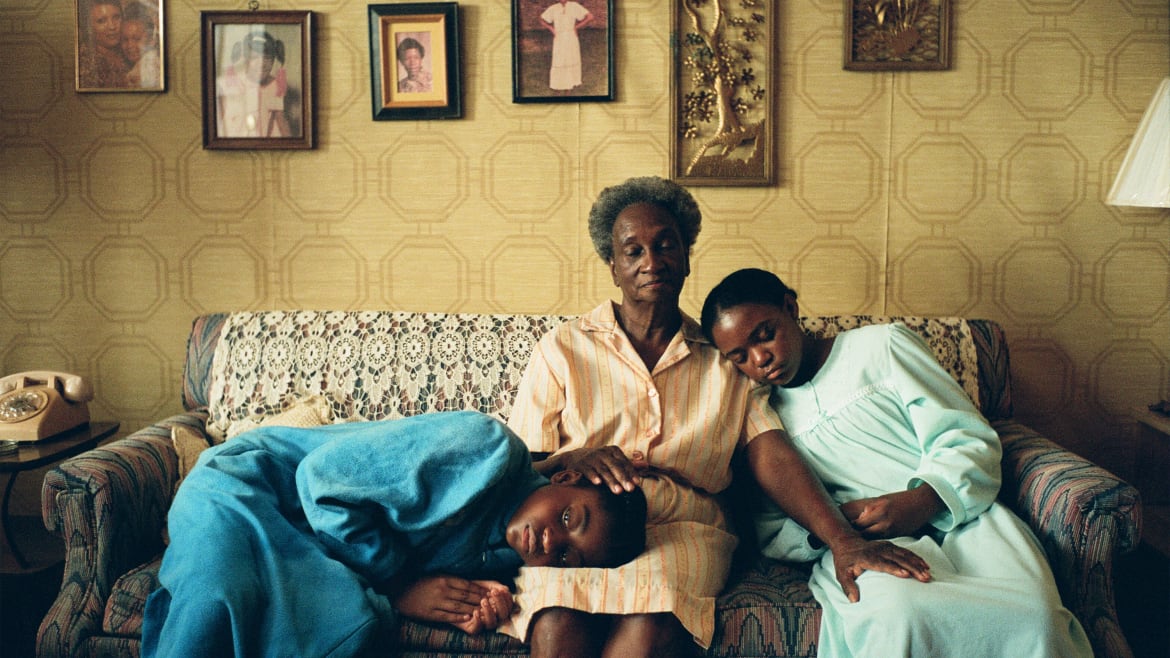 Jaclyn Martinez/A24
Jaclyn Martinez/A24Three of the year’s most lauded films, each written and directed by Black women, expose the beauty and heartbreak of being a Black mother in America. In Savannah Leaf’s gut-wrenching Earth Mama, a recovering drug addict weighs the future of her unborn child while trying to retrieve her two children from the foster-care system. In a refreshing approach, Leaf explores the precarious lives of poor, young mothers without making a spectacle out of these women’s hardships. There’s also AV Rockwell’s excellent A Thousand and One, which made a slightly bigger splash at this year’s Sundance Film Festival. Like Earth Mama, the movie highlights the foster-care system, if only to reveal several complicated realities for a mother and her son living in ’90s Harlem.
The last and most insular of the trio is Raven Jackson’s All Dirt Roads Taste of Salt, which screened at this year’s New York Film Festival on Monday. Set in rural Mississippi, the film gorgeously captures the stages of a woman’s adolescence, before she unexpectedly becomes pregnant by a childhood companion.
Distributed by A24 and co-produced by Barry Jenkins—and borrowing much of his visual aesthetic—All Dirt Roads is the type of painstakingly sumptuous film that prioritizes image and sound over story or character. That being said, I was somewhat grateful that I watched Earth Mama a few days before seeing All Dirt Roads as an accidental double feature. My residual thoughts about Earth Mama (although starkly different from All Dirt Roads in several ways) unfortunately added more texture to Jackson’s movie than it contained on its own. Even having personal experiences that mirrored those of the main character, Mackenzie, I struggled to drudge up the emotions the film wanted me to feel at every turn. Despite its potentially rich subject material, All Dirts Roads unfortunately gets lost in its own beauty, making for a stagnant and frustrating viewing experience.

 1 year ago
410
1 year ago
410 
















 English (United States) ·
English (United States) ·